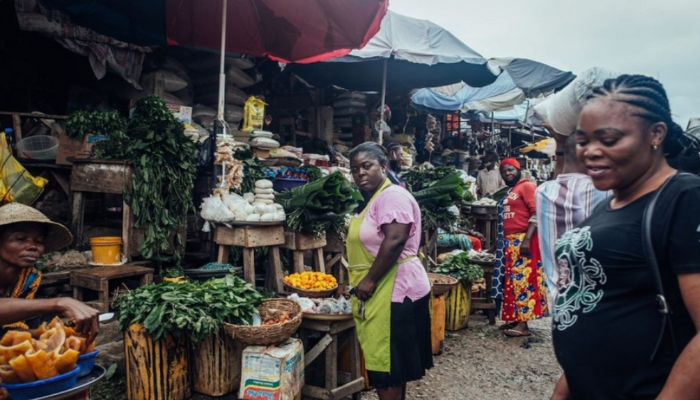Infostride News recently published the monthly Consumer Price Index (CPI) report for Nigeria, as released by the National Bureau of Statistics (NBS) last week Friday. The report unveiled a concerning headline inflation rate of 28.2% for November 2023. Notably, this marks the eleventh consecutive month of increase throughout the year, reaching the highest level since July 2005, spanning over 18 years.
Year-to-date, the inflation rate in Nigeria has surged by 7.21 percentage points, signaling the swiftest pace of increase recorded since the economic recession in 2016. A deeper dive into the report indicates that the surge is predominantly attributed to escalating food prices. This surge has been exacerbated by various factors, including insecurity in food-producing regions, elevated transport costs, and flooding, among other underlying issues.
Nigeria has grappled with a double-digit inflation rate for the past seven years. However, the tipping point occurred in May 2023 when the new administration of President Tinubu removed the petrol subsidy, propelling the inflation rate to unprecedented levels not witnessed in decades.

As of November 2023, Nigeria finds itself mired in its worst inflation level in over 18 years. A straightforward time series forecast suggests that the inflation rate is poised to rise to at least 28.28% in December, assuming all other factors remain constant. This projection would catapult Nigeria’s inflation to its worst level since 1996, spanning over 27 years.
**Drivers of Nigeria’s Inflation:**
The NBS identifies major contributors to Nigeria’s inflation in November 2023, including food and beverages, road and air transport, pharmaceutical drugs, and accommodation, among other factors. Notably, food and non-alcoholic beverages accounted for 14.61% of the headline inflation, followed by housing, water, electricity, gas, and other fuel at 4.72%. Additionally, clothing and transport contributed 2.16% and 1.84%, respectively.
The compounded impact of removing the petrol subsidy and the devaluation of the naira at the official market, leading to a 221% increase in petrol prices and a 51% depreciation in the exchange rate, has rippled across the economy. Transport costs have tripled, food prices are critically high and volatile, and the cost of drugs has surged, exacerbated by reports of GSK withdrawing from Nigeria.
**Detty December Could Worsen the Rate:**
Despite the conservative forecast of 28.28% for December, the festive season could further inflate prices. December, characterized by increased food consumption, merriment, travel, and outdoor events, might trigger demand-pull inflation. Many Nigerians, both in and outside the country, travel to visit their families, increasing demand for transportation services. Festivities could also drive the prices of groceries and food items upward, potentially surpassing the projected 28.28%.
The possibility of petrol prices rising further to over N700 per litre could exacerbate the inflation trend. The World Bank had previously suggested the discontinuation of any form of petrol subsidy payments, potentially resulting in a payment of N750 per litre for Nigerians. Persistent cash scarcity in some regions could also contribute to inflation, as past experiences of cash drought have been followed by a significant surge in prices.
**Bottom Line:**
Nigeria’s inflation is poised to hit or exceed the 28.28% projection, marking its highest point in over 27 years. However, a gradual tapering of the rate is anticipated towards the second quarter of 2024 as the effects begin to take hold.
The escalating cost of goods and services amid relatively stagnant earnings means more Nigerians are witnessing a decline in purchasing power, pushing millions below the poverty line. It is imperative for individuals to prioritize and align their expenses with their current earning capacity or explore avenues to enhance their income through acquiring relevant knowledge or diversifying their income streams.
In addressing this challenging scenario, it becomes crucial for the Central Bank of Nigeria (CBN) and the government to formulate a comprehensive set of policies to curb this upward trend in inflation, a trend that has proven resistant to the impact of interest rate hikes alone. Infostride News will continue to monitor and report on developments in Nigeria’s economic landscape.
Support InfoStride News' Credible Journalism: Only credible journalism can guarantee a fair, accountable and transparent society, including democracy and government. It involves a lot of efforts and money. We need your support. Click here to Donate
